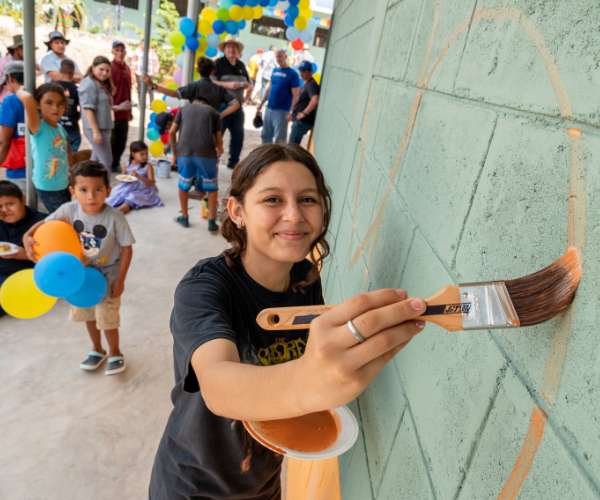Sustainable Development Means Teamwork
Why give a person a fish to feed them for a day when you can teach an entire village to fish, sell the fish, and sustain their lives?
This is what sustainable development does for the people Food For The Poor helps. Guided by a thorough monitoring and evaluation process, the charity continues to adopt innovative methods to aid families living in poverty. Instead of simply providing piecemeal aid, Food For The Poor reaches out to impoverished families and involves them in the development of a customized plan that will pinpoint the assistance that will be the most beneficial.
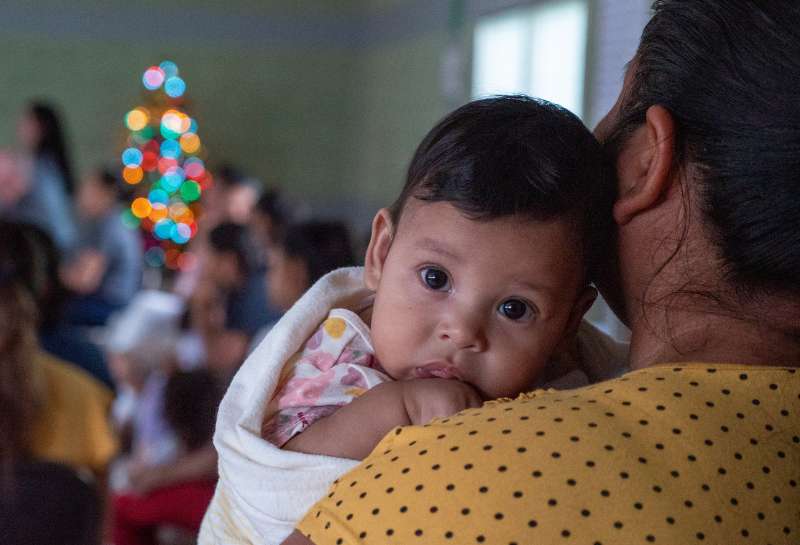
When organizations such as Food For The Poor employ long-term self-help methods, it gives people an opportunity to break free from poverty and obtain the chance to create a better future for themselves.
What Is Sustainable Development?
The World Health Organization defines sustainable development as “policies, projects and investments that provide benefits today without sacrificing environmental, social, and personal health in the future.” A village designed with sustainable development in mind, for example, would emphasize planting fruit trees to provide food for families for the future rather than cutting down trees for fire.
Food For The Poor addresses critical needs and collaborates with the communities to fulfill those needs. Solutions are introduced to address areas such as food, water, housing, sanitation, and education. Workshops to teach skills and income-generating projects are examples of the resources that are provided to help families sustain themselves now and into the future.
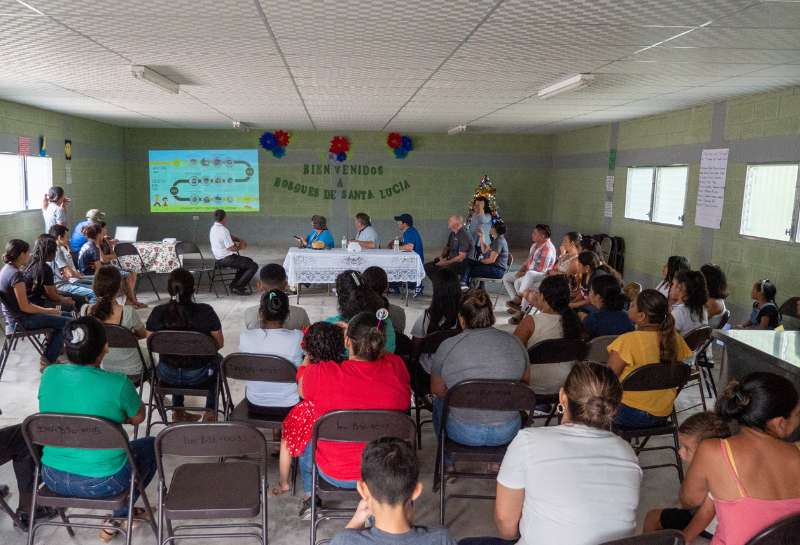
These homes and accompanying resources allow impoverished families to be active contributors in the transformation of their lives.
Sustainable development communities are a powerful testament of solidarity and community resilience. They are assurance that families facing the harshest blows can experience life in all its fullness.
The Importance of Monitoring and Evaluation
The process of monitoring and evaluating sustainable development communities is critical to their success. It allows Food For The Poor to find out what is working and what is not. Teamwork is essential.
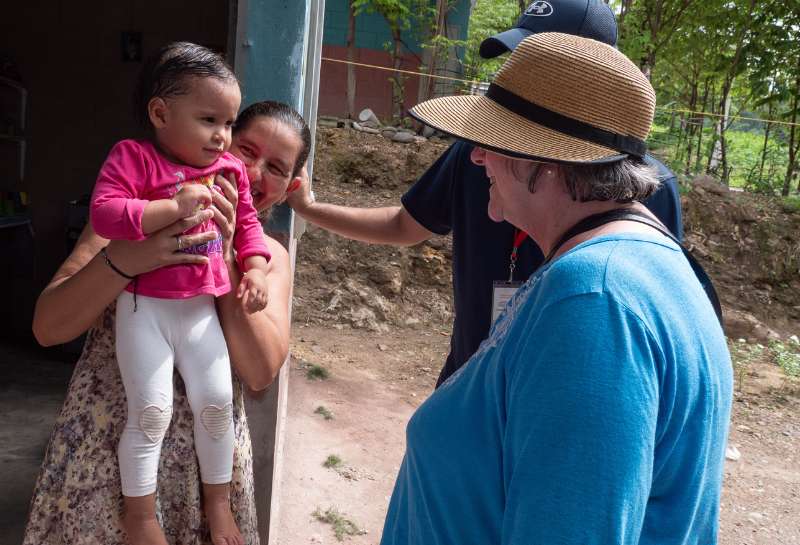
“Monitoring, Evaluation, and Learning (MEL) is important to measure the degree to which an operational design is implemented as planned and how successfully it achieves its intended results,” said Alicia Narvaez, Product Development Manager for Sustainable Community Development at Food For The Poor.
“MEL is essential to design appropriate, effective, measurable programs and projects, and to monitor implementation and evaluate the outcomes of specific activities among target populations consistently and effectively,” she said.
Collaboration and Teamwork
Sustainable development means collaboration – working alongside people to assess their needs and take the steps to fulfill them. Because every person needs to have clean water, food, and housing, those items are always prioritized. However, poverty cannot be eradicated by addressing only those areas. Education and jobs are important to helping communities transcend to become self-sustaining and self-sufficient.
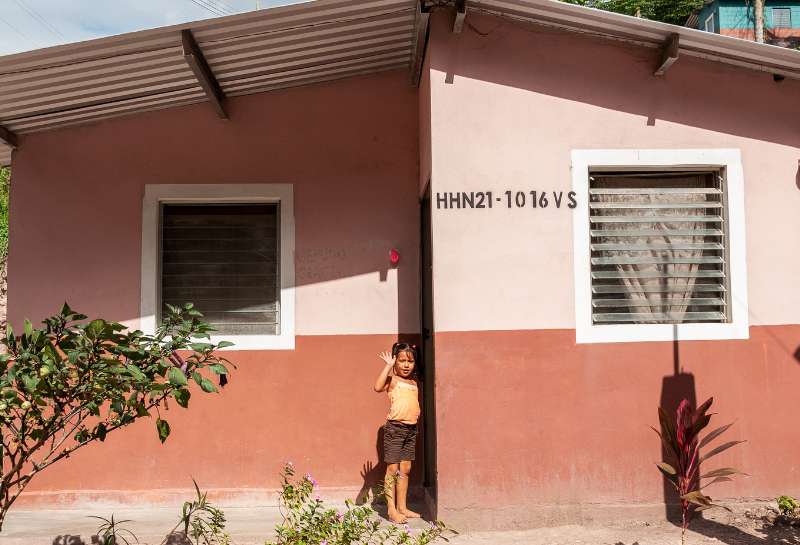
About 57 families living in poverty in Honduras, one of the most impoverished countries in Latin America, had little hope of improving their lives until Food For The Poor and partner organizations stepped in and built the Bosques de Santa Lucia sustainable development community.
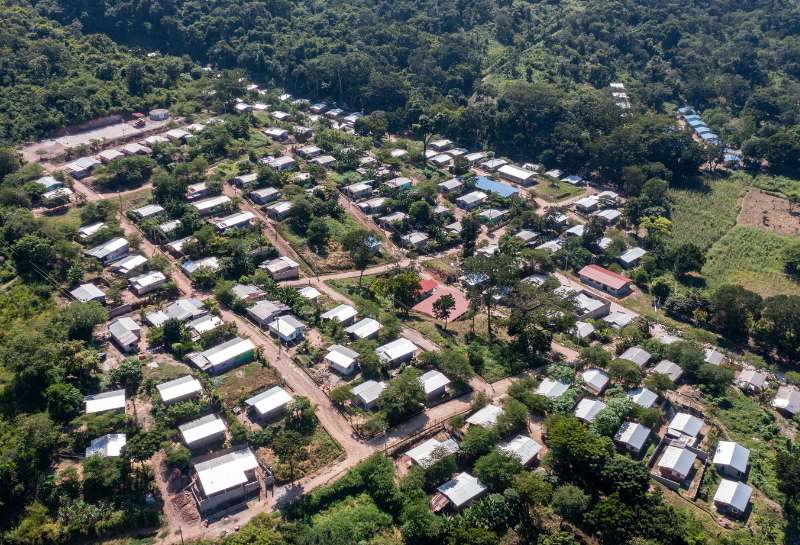
The Food For The Poor data presented show Bosques de Santa Lucia’s sustainability scores for 2023 at 7 or above in five of the seven categories. The assessment: The project meets or exceeds our targets that are based on the United Nations Sustainable Development Goals. The community is progressing toward self-sustainability while more attention is indicated in the areas of financial services and social development.
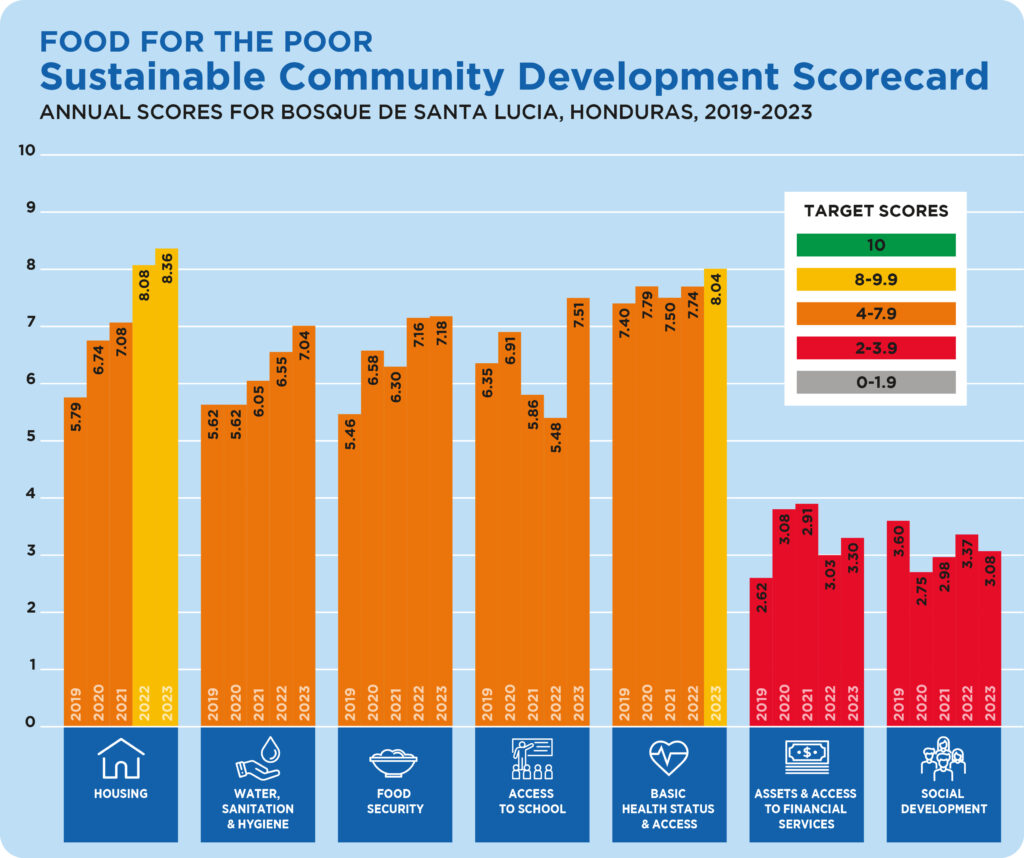
Sustainable Development Means Better Quality of Life
To illustrate how the focus on sustainable development leads to improvements in quality of life, let’s consider a basic necessity – sanitation.
According to the U.S. Centers for Disease Control and Prevention: “Sanitation and hygiene are critical to health, survival, and development. Many countries face challenges in providing adequate sanitation for their entire populations, leaving people at risk for diseases related to water, sanitation, and hygiene. Throughout the world, an estimated 1.7 billion people lack basic sanitation (about 21% of the world’s population).”
Sanitation includes more than proper toilet facilities. It requires easy access to water for handwashing. Proper sanitation can have astounding effects on a community’s well-being and health. It not only lessens the occurrence of diseases that are deadly to children, such as diarrhea, but diseases such as typhoid.
The World Health Organization (WHO) describes WASH (water, sanitation, and hygiene) as critical to human health and well-being. Proper sanitation reduces intestinal worms and lessens the severity of malnutrition. It can even boost school attendance among girls when there are proper sanitary facilities for them to use.
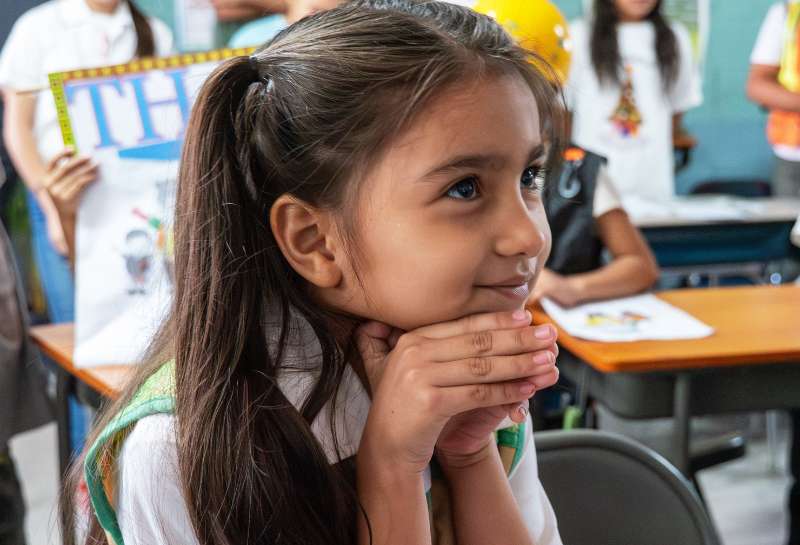
A WHO study conducted in 2012 determined that for every $1 invested in proper sanitation, a community lowers health costs by $5.50, increases productivity, and reduces premature deaths.
A Large-Scale Success in Colombia
The village of Palma Real in Granada, Colombia, is an excellent example of how sustainable community development vastly improves the lives of families. This five-year project, which was inaugurated in 2021, is a collaboration between Food For The Poor and Colombian partner organization Minuto de Dios.
About 60 families so far have received homes or are waiting to move into Palma Real homes that are under construction, said David Langle, Project Manager for South America at Food For The Poor.
The residents not only have safe housing with proper sanitation facilities, but other areas of their lives have improved. Average household income has increased each month. The percentage of children 8 years and older who struggle to read has decreased by 3%. The families are overjoyed about their new lives and their new homes.
Food For The Poor conducted an 18-month assessment of the community. Here is a sampling of what residents had to say about their satisfaction with the Palma Real project:
- “I have felt very happy in Palma Real, knowing that I have my own house in which no one is going to take me out of it, and I can decorate it however I want, and live comfortably with my family.”
- “I like the house and the changes I see in my children, that they have their own room, the positive change in their grades and that now we have parks nearby so they can go play.”
- “The problems that arise in the neighborhood are resolved through dialogue in accordance with what has been explained to us in the meetings. Likewise, we are working together to create a community action board of the Palma Real neighborhood.”
Through partnership, collaboration and working alongside families to assess and evaluate their needs, sustainable community development creates dynamic and exciting opportunities.
It means parents have a good chance of raising their children in a strong community where they can finally break the cycle of poverty. It means safe homes where children can play outside and sleep peacefully through the night. It means food on the table, cleaner living conditions, less disease and better income-generating opportunities.
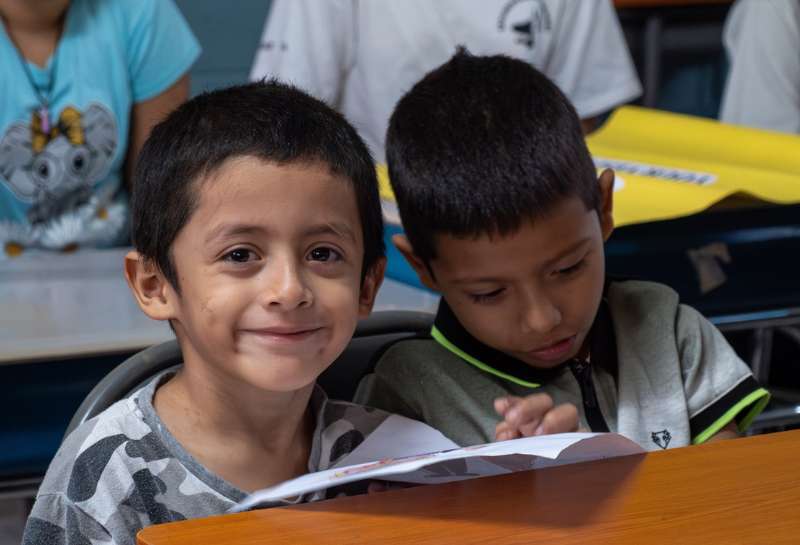
If you are interested in providing support for a sustainable development community, please click here.

